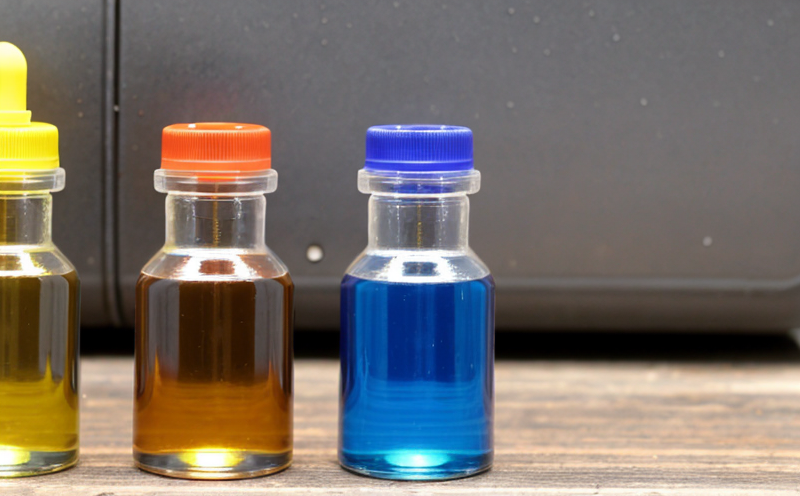Fungicide pH Testing
Fungicides are critical components in agriculture and horticulture, used to protect crops from fungal diseases. Understanding and controlling the pH level of fungicides is vital for their effectiveness and safety. The pH value not only affects a fungicide's stability but also its efficacy against target pathogens. In environments with extreme pH levels, some fungicides may lose potency or become toxic to beneficial organisms.
The primary objective in Fungicide pH Testing is to ensure the fungicide remains within an optimal pH range throughout its lifecycle. This includes during storage and application processes. Testing helps identify any changes that could compromise the fungicide's performance, ensuring that it meets regulatory standards and provides consistent protection against fungal infections.
The testing process involves several key steps. Initially, a sample of the fungicide is prepared for analysis according to international standards such as ISO 8467:2019, which specifies methods for determining pH values in solutions. The sample preparation method typically includes dilution and filtration to ensure accurate readings.
The actual measurement process utilizes advanced pH meters that adhere to ASTM D3575-18 or IEC 62369 standards. These devices are calibrated regularly using buffer solutions of known pH values, ensuring accuracy across the entire range tested. The pH is measured at various critical points during storage and application.
Once the data is collected, it undergoes rigorous analysis to identify any deviations from the specified acceptable limits. Compliance with these limits ensures that the fungicide maintains its intended properties and remains effective against pathogens without causing unintended harm to the environment or beneficial organisms.
This service also helps in understanding how different pH levels affect the solubility of active ingredients, their breakdown rates, and overall shelf life. For instance, if a fungicide becomes too acidic or alkaline, it can lead to degradation of its active compounds, reducing effectiveness against pests. Conversely, maintaining optimal pH ensures maximum efficacy.
The importance of Fungicide pH Testing extends beyond just chemical stability; it also impacts the application process and environmental safety. Properly adjusted fungicides are easier to apply, leading to more effective coverage on crops. Additionally, they minimize potential risks associated with improper use or storage conditions that could lead to waste.
In summary, this testing ensures not only compliance with regulatory requirements but also enhances crop protection strategies by optimizing fungicide performance. By providing precise pH measurements and analysis, Eurolab helps customers maintain high standards of quality control throughout their operations.
Benefits
- Ensures Compliance: Meets international regulatory requirements for fungicide formulations.
- Precise pH Control: Maintains optimal conditions for fungicide efficacy and stability.
- Better Crop Protection: Enhances the effectiveness of fungicides against pathogens without causing harm to beneficial organisms.
- Reduces Waste: By optimizing pH levels, reduces unnecessary use and subsequent waste from ineffective products.
- Environmentally Friendly: Prevents contamination of water sources and soil with improperly adjusted fungicides.
- Improved Application Efficiency: Facilitates easier application processes leading to better crop coverage.
Industry Applications
In the agricultural sector, Fungicide pH Testing plays a crucial role in maintaining effective crop protection programs. By ensuring that fungicides remain within their optimal pH range, this service supports sustainable farming practices. Farmers and researchers rely on accurate pH measurements to tailor application rates based on soil types and weather conditions.
In horticulture, the use of fungicides is essential for protecting ornamental plants and fruit-bearing trees from fungal diseases. Properly adjusted fungicides ensure that these crops grow healthily without succumbing to infections. This service also helps nurseries and garden centers provide better plant care recommendations by offering precise pH data.
For pharmaceutical companies, ensuring the correct pH of fungicides used in topical applications is vital for patient safety. Incorrect pH levels could lead to irritation or reduced efficacy of the product. The testing process ensures that these fungicides meet stringent quality control standards before being distributed to consumers.
Biopesticide manufacturers also benefit from this service as they need to guarantee consistent performance across different formulations and storage conditions. By monitoring pH changes, biopesticide developers can make necessary adjustments early in their development cycle, ensuring final products are effective and safe for use.





